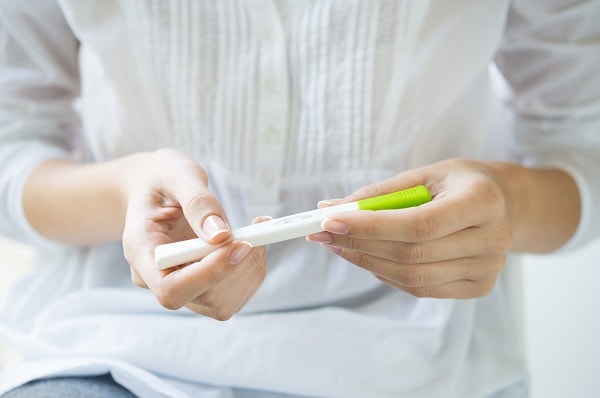Many couples feel guilty and devastated after a miscarriage, especially if it happens in the early weeks or even months of pregnancy. It is quite normal for people to blame a specific situation or act, but miscarriages are triggered rarely by factors that are under the woman’s control. These include factors such as genetic (chromosomal) abnormalities and various other physical elements. If you are worrying about suffering this loss during pregnancy, then keep reading as the information below will give some tips on how to minimize the risk of miscarriage.
Avoid lifting heavy objects:
During pregnancy, the progesterone hormone levels in your body will be very high. This hormone softens and relaxes ligaments and muscles to make the body a lot more flexible, particularly the pelvis. All of these changes will make you more susceptible to injury. The lifting of heavy objects can lead to back injury and strain in other areas of your body. For that reason, you should use lifting aids or avoid heavy lifting completely if possible.
Avoid trauma to the stomach:
You should not take part in sporting activities that might result in serious falls. A stab wound or injury from a seat belt or steering wheel causes miscarriage sometimes, especially in the second trimester.
Don’t consume alcoholic beverages or a lot of caffeine:
You will double your risk of having a miscarriage if you are drinking alcoholic beverages two times a week. Similarly, consuming large amounts of caffeine in over four cups of coffee daily or the equivalent in any other substance with caffeine can increase your risk slightly. Doctors usually recommend only one cup daily.
Increase your intake of folic acid:
It is important to maintain a healthy and well-balanced diet during pregnancy, and folic acid will play a major role here. When folic acid is taken before pregnancy, it will help to prevent devastating birth defects as well as reduce the chances of early miscarriage.
Quit smoking:
If you are smoking during pregnancy, you will have a higher risk of having a miscarriage. The number of cigarettes that you smoke will increase your risk of losing your baby. Quitting smoking during pregnancy at any time can benefit your baby.
Check all medications before use:
There are certain over-the-counter and prescription drugs that are linked to miscarriages and fetal abnormalities. For this reason, you need to consult a doctor before using any medication while trying to conceive or during pregnancy.
Avoid regular excessive physical shocks or vibrations:
If possible, you should avoid exposure to loud noise that is excessive and continuous during pregnancy. You should also avoid scuba diving or flying in planes that are un-pressurized as those conditions can lower oxygen levels.
Stay away from poisons and radiation:
Your risk of having a miscarriage will increase if you are exposed to high levels of toxic or radiation substances. Things like lead, arsenic, formaldehyde, ethylene and benzene can contribute to a miscarriage. Ensure that you’re not exposed to such substances at the workplace or anywhere else when trying to conceive or during pregnancy.
Avoid infectious hazards:
If you are affected by infectious hazards or biological agents (viruses), they can infect your unborn baby. Some infections get to the baby inside the womb by passing through the placenta.
There are some cases when AIDS/HIV or hepatitis B will cause the baby to experience illness prior to birth or experience it long after. Several viruses can cause birth defects, miscarriage, or mental and physical delays such as toxoplasmosis, rubella or cytomegalovirus in the baby. If you are working with animals or in emergency services, hospitals, prisons, schools, childcare, and any other care facility, it will be very important to use gloves and other protective gear while handling blood items, depending on the circumstances. There are instances when it might be necessary for you to get reassigned temporarily to work in some other area.
Try to avoid too much variation in temperature:
It is highly likely that you will faint if you are working in very hot conditions when pregnant. An area that is hot enough to raise your body temperature for several hours to over 38.5 degrees Celsius, or 101.3 degrees Fahrenheit, in the first twelve weeks of pregnancy can potentially contribute to birth defects. Being exposed to a prolonged increased temperature from around twelve weeks of pregnancy up to the time of birth can result in premature labor or distress for the baby.
Overall, most miscarriages cannot be avoided as they are triggered by severe genetic conditions which are determined at the start of pregnancy. Some doctors recommend bed rest for a day as well as no sexual intercourse for several weeks when miscarriage threatens. If a hormonal imbalance causes miscarriage, progesterone hormone could be given as treatment to help prevent succeeding miscarriages. There are certain procedures that can be used to treat repeated miscarriages that are linked to structural problems. Be sure to consult your doctor to get the best advice on how to minimize the risk of miscarriage.



